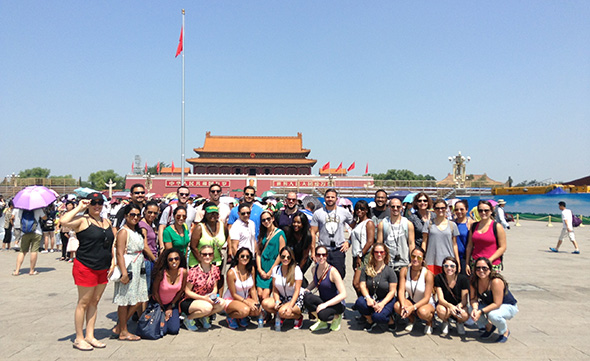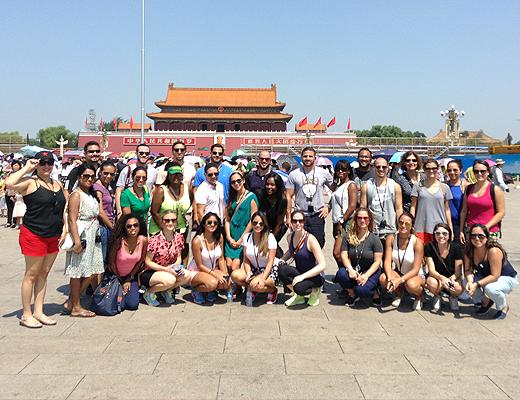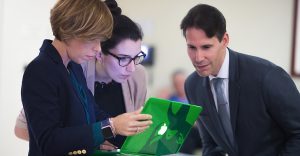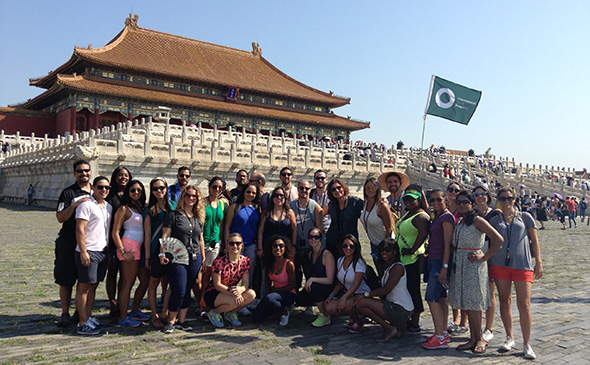
China’s health care system, while invested in its own traditions and dealing with a far larger population, has similarities with our own. Both, explained Miriam Weismann, academic director of FIU’s Healthcare MBA program, are fragmented, with a mix of public and private funding. Multiple reimbursement systems must be navigated. And both offer lavish attention to those with means, while others struggle to get basic care.
Weismann and students in the Healthcare MBA program saw these challenges first hand when they spent 10 days this summer in Beijing and Guangzhou. The group of 30 visited public and private hospitals, clinics, a pharmaceutical company, a non-profit (few and far between in China), as well as a PricewaterhouseCoopers office, where they discussed health care financing.
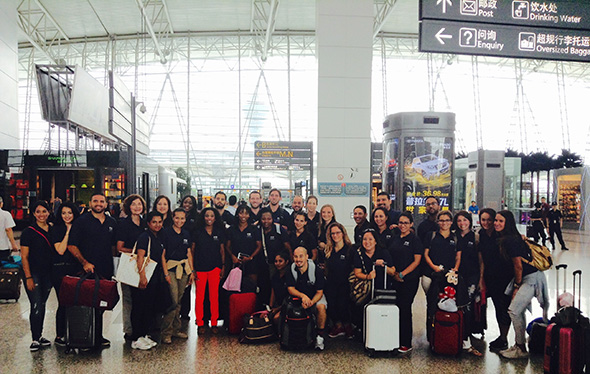
Completion of the study abroad program, which includes a rigorous academic component and a health policy analysis, earns the Advanced Certificate in Global Healthcare Administration.
“The whole purpose of the trip was to consider a global health care system and compare the models in China to other global systems: ours, France, Germany, Japan and others,” Weismann said, adding that in order for the U.S. health care system to meet today’s challenges, it’s necessary to see how other countries approach their issues. “The main theory is that we can only see ourselves through the mirror of the world.”
System blends tradition with modern practice.
One striking difference was how traditional Chinese medicine, more than 2,000 years old, is integrated into health care. And one enlightening experience was visiting a non-profit dedicated to helping the blind. It was started by Xiaojie Zheng, a former high level scientist. China hasn’t many such charities and there are few accommodations for the disabled. The group found her and her work inspirational, said Weismann. Even in such a vast country, the lesson was that one person can make a difference.
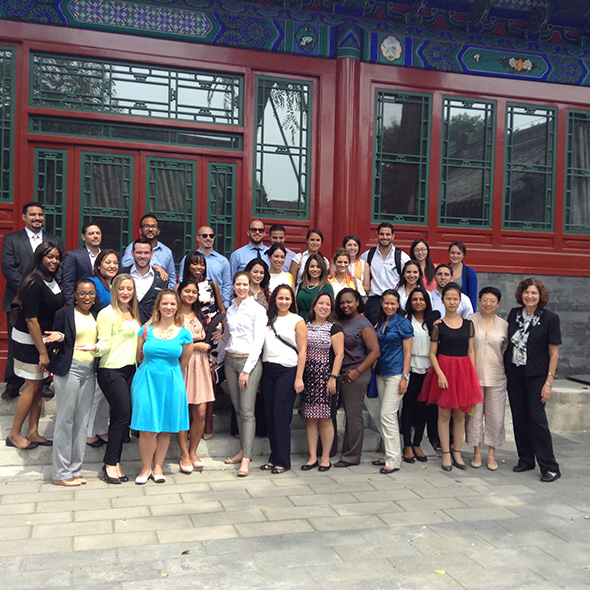
Along on the trip was Vanessa Vega, who will graduate from the FIU program in December. Vega, who works at Baptist Health South Florida’s Founder’s Society, said the trip was life changing. Vega said that Xiaojie Zheng left an indelible impression. “She took all of her intelligence to make a meaningful difference in the world, while still being independent and efficient.”
After witnessing the sheer volume of people public hospitals deal with – each patient often allotted about three minutes per visit – Vega returned home thinking about how crucial it is to keep the human factor in health care.
That means, she said, making health care more efficient while giving patients quality attention and dedication.
It was the first trip to China for Weismann, who became Academic Director of the Healthcare MBA in February 2015, and has revamped the curriculum, including a 120-hour residency program that now incorporates Lean Six Sigma yellow belt and green belt certification. Lean Six Sigma centers on efficiencies in supply chain, quality assurance, business risk and other management processes. The program also strengthened its intensive writing course, and offers a series of pre-class boot camps on topics including accounting, team building, health care innovation and health care analytics.
Weismann is bringing the same kind of rigor to the study abroad trips. “What I wanted to do was create an intense academic experience that would add value to the student’s professional training in the field,” she said.
